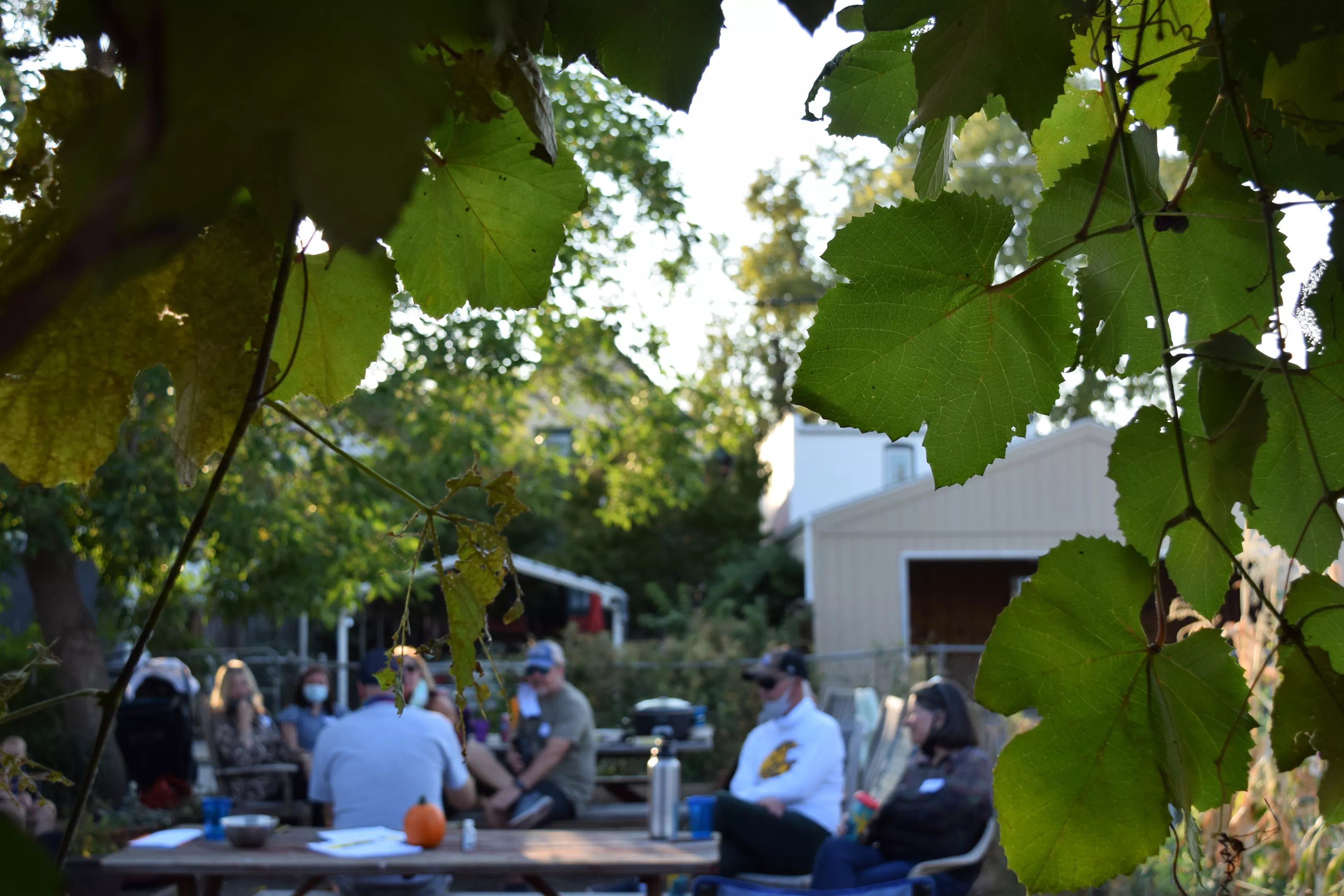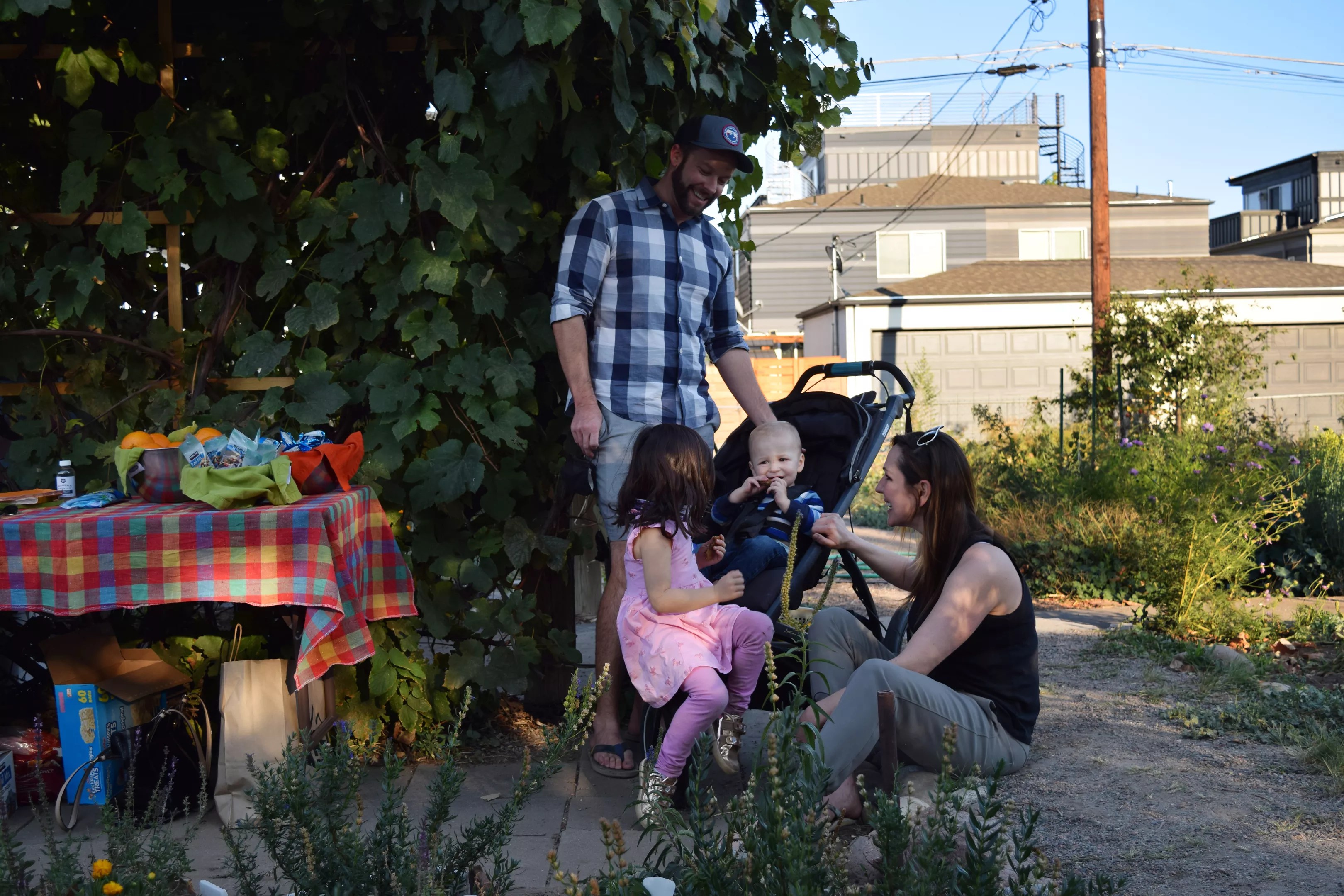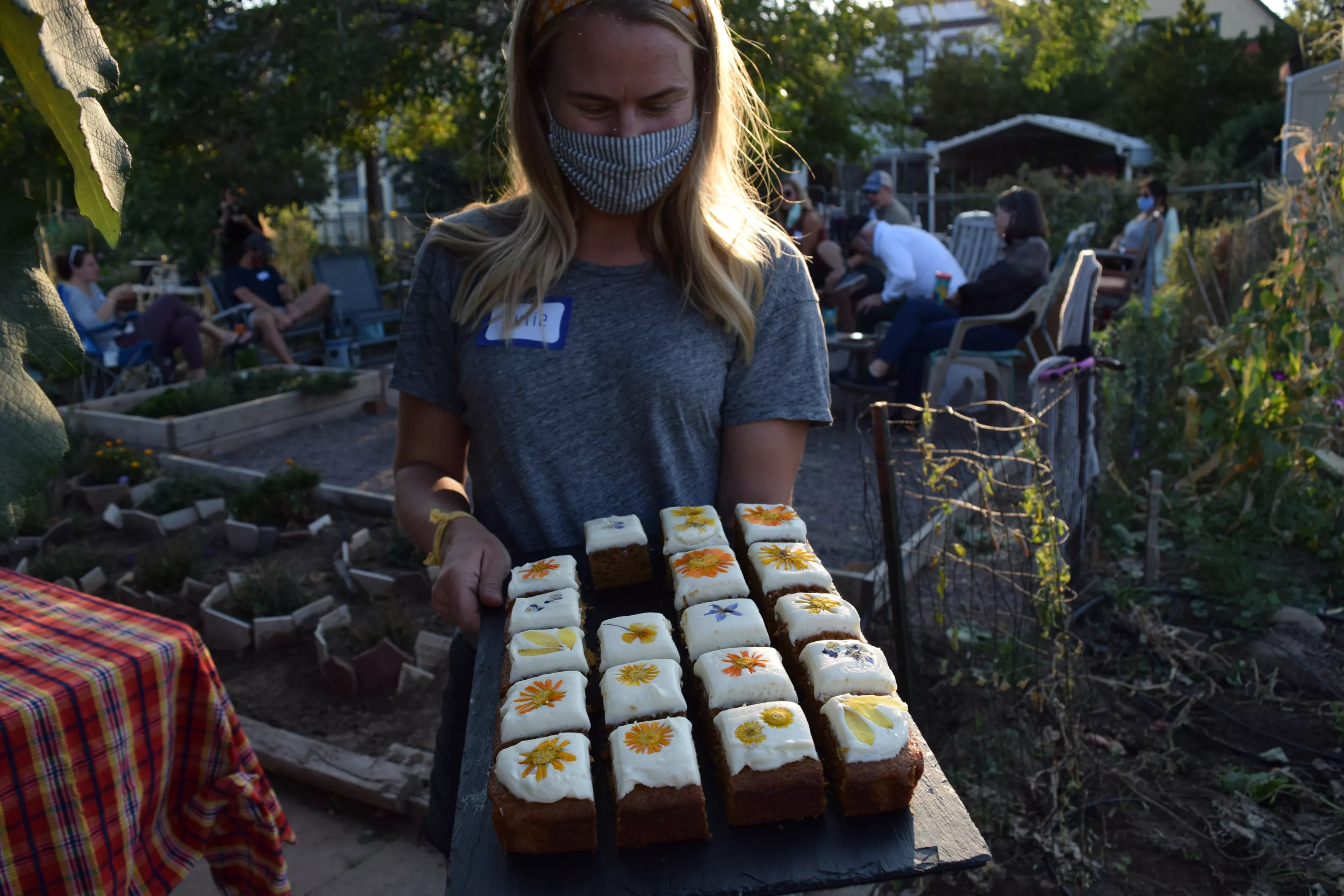
Claire Duncombe

Audio By Carbonatix
The gardeners at El Oasis Community Garden in northwest Denver enjoyed a small victory earlier this month. Their move-out date was extended to October 18, giving them two more weeks to enjoy their garden’s bounty. It was a small reprieve from the bad news they’d learned from Denver Urban Gardens, which owns the land, less than a month earlier: Two-thirds of El Oasis is under contract to be sold.
The sale, brought about to cover the nonprofit’s outstanding debt, is meant to sustain the organization’s ability to provide for more than 180 other gardens it maintains around the city. Without the sale’s revenue, DUG could cease to exist. But once the land – sold in good faith to the nonprofit for $1 in 1988 – is developed, it cannot be replaced.
“I find myself in a pickle,” says Denver City Councilwoman Amanda Sandoval, who’s been contacted by many of her constituents about the sale. “I understand. I’m empathetic to their concerns. … I wish we weren’t in this particular situation for all involved. I think it’s pitting neighbors against a nonprofit that does a lot of really good community work.”

While the El Oasis community celebrated the additional two weeks to garden, they still question the chain of events that led to the sale.
Claire Duncombe
She’s not the only one to feel that there’s no good option. Rachel Bygrave, the garden leader of DUG’s Whittier Garden, expressed frustration that the DUG board hadn’t been transparent about its financial situation. “The gardeners all across the city weren’t able to rally,” she says. “I hope they looked at every possibility…. It’s disappointing that people didn’t have an advance [notice], because we can’t lose DUG, either. That’s not a good solution.”
El Oasis gardeners hoped that media attention and public pressure might cause Caliber Construction, the anticipated buyers, to back out of the deal. But Caliber has maintained a low profile, ignoring all gardeners’ requests for conversation and declining to comment for this story or the original coverage on September 24. The deal is set to close on December 1.
In 2006, Bygrave experienced the sale of another DUG property, located in Capitol Hill. The nonprofit didn’t own the land, and when the owner died, his children sold the property. DUG’s executive director at the time, Michael Buchenau, did everything he could to save the garden, Bygrave says. “He really cared passionately about saving that garden, and he helped us every step of the way trying to save that land.”

Many brought food to an October 4 potluck made with garden ingredients, including a cake made with edible flowers.
Claire Duncombe
At the end of September, after the sale of El Oasis became public, Dr. Violeta Garcia stepped down as executive director of Denver Urban Gardens. Garcia did not respond to a request for her comment on the matter.
On October 1, Lara Fahnestock, DUG’s director of garden support, sent El Oasis gardeners an apology for not bringing them into the conversation earlier. “We understand that you’re still hurting and our communications providing details into our reasons for the sale don’t resonate for many of you. Perhaps for some of you this apology is too little, too late; however, it is offered with sincerity and with the desire to find healing and move forward in better partnership and communication.”
Gardeners met at El Oasis on October 4 for a potluck picnic to celebrate the community and say goodbye to the garden as they’ve come to know it. Many of them aren’t ready to give up the fight. Some say they plan to continue to protest the sale even if it goes through in December. But other members, like Alan Olds, an El Oasis garden leader, are asking, “How do you keep [the movement] alive?”